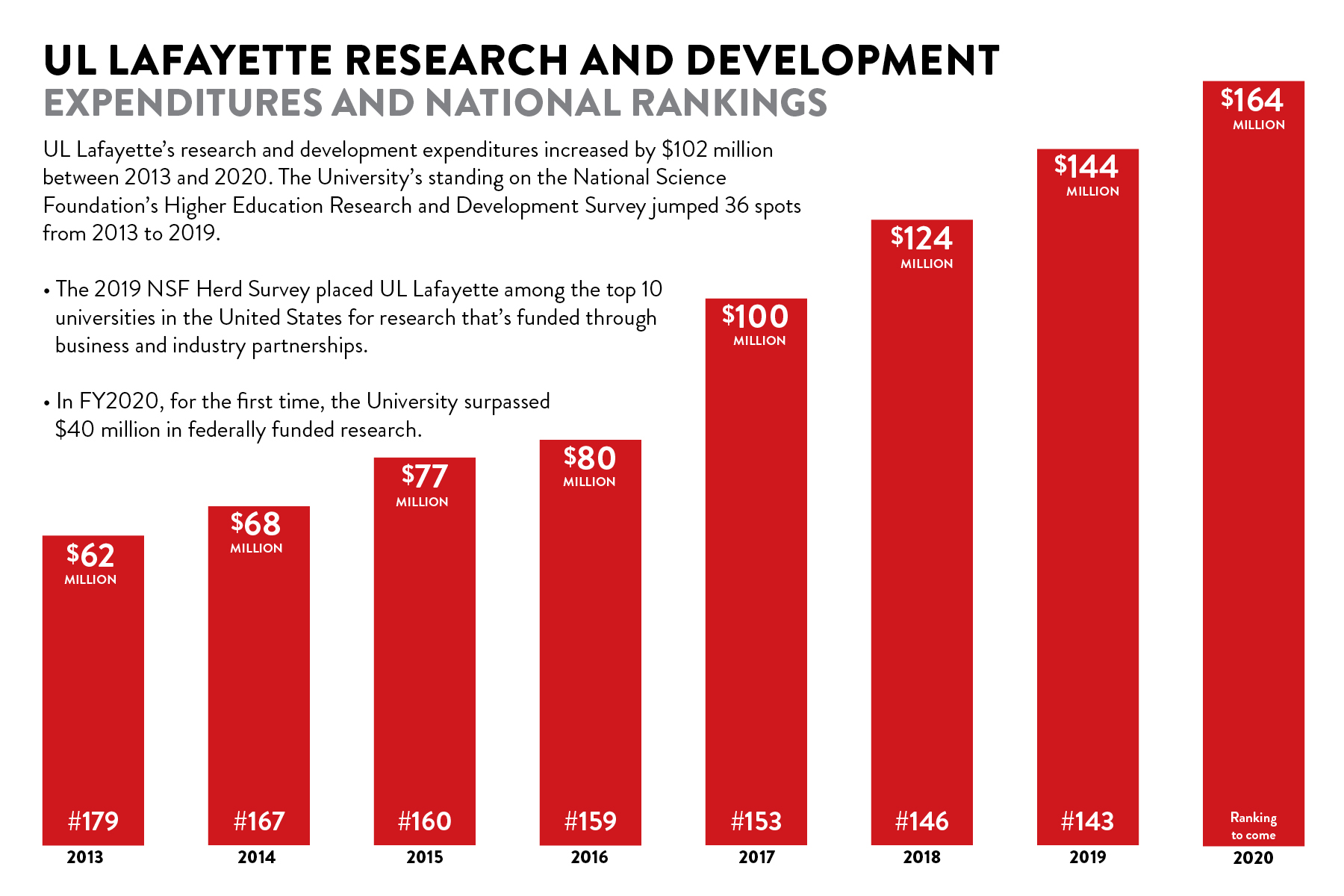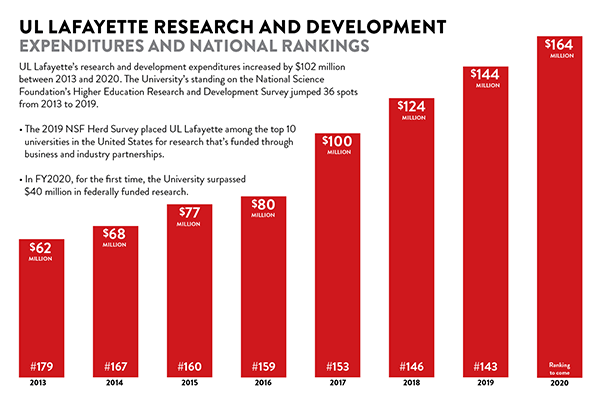The University of Louisiana at Lafayette’s research and development expenditures last year set a record at $164 million.
The total marks an “incredible” 165% increase in R&D spending at UL Lafayette in seven years, Dr. Joseph Savoie announced Wednesday during the annual State of the University address.
“We’ve had banner years throughout the past decade – and it looks like we’ll need to invest in bigger banners, because we’ve done it again,” the University president said.
The State of the University presentation to faculty and staff members is held each fall semester. In it, Savoie celebrated accolades and milestones from the past academic year.
In addition to record research and development expenditures, the speech highlighted:
- historic levels of philanthropy;
- the prominence of Louisiana Ragin’ Cajuns Athletics; and
- the leadership UL Lafayette provides to diversity, equity and inclusion initiatives at the state and national levels.
UL Lafayette’s R&D expenditures increased by $102 million – from $62 million to $164 million – between 2013 and 2020, according to the Higher Education Research and Development Survey. The HERD Survey is the National Science Foundation’s annual index of research spending at U.S. colleges and universities.
UL Lafayette competes against other universities for federal and state grants, and private sector contracts. The University acts as a steward for the funds awarded to faculty and staff researchers.
NSF has not yet released UL Lafayette’s ranking for 2020 that will be based on the $164 million figure.
In 2019, when UL Lafayette expended $144.2 million, NSF ranked the University 143rd –among the top 22% – of the 647 institutions the survey included.
The 2019 survey also placed the University among the top 10 in the nation for research that’s funded through partnerships with business and industry.
As an example of how such partnerships can have global implications, Savoie cited the role UL Lafayette’s New Iberia Research Center played in the creation of the Pfizer-BioNTech COVID-19 vaccine, the world’s first widely available coronavirus vaccine and the first to secure full FDA approval.
“The pandemic happened at a moment when years of scientific research about the treatment, prevention and eradication of infectious diseases could be brought to bear to find a solution,” Savoie said.
The New Iberia Research Center “has built a strong reputation,” he continued. “Biomedical and biopharmaceutical partners know instinctively who to call when lives are at stake.”
During the speech, Savoie also paid tribute to faculty and staff members who, despite continued pandemic-related challenges and several natural disasters in the past year, “have remained steady.”
“Your perseverance, determination, ingenuity, and dedication to our students and to our wider community – and to the success and advancement of both – enable me to report today that the state of our University is strong,” he said.
Dr. Jaimie Hebert, provost and vice president for Academic Affairs, followed Savoie’s speech with a presentation that outlined the University’s ongoing strategic planning process.
He urged faculty, staff members, alumni, students and community members to help the University “define what success . . . looks like.”
“To truly realize our potential and allow ourselves to capitalize on the amazing people and the strengths we have within each division, we must take the time – we must take the opportunity – to align our priorities,” Hebert said.
“We must push in the same direction in support of what we determine is most important to us collectively. We can only reach that next level of success together.”
View materials related to the State of the University here.

